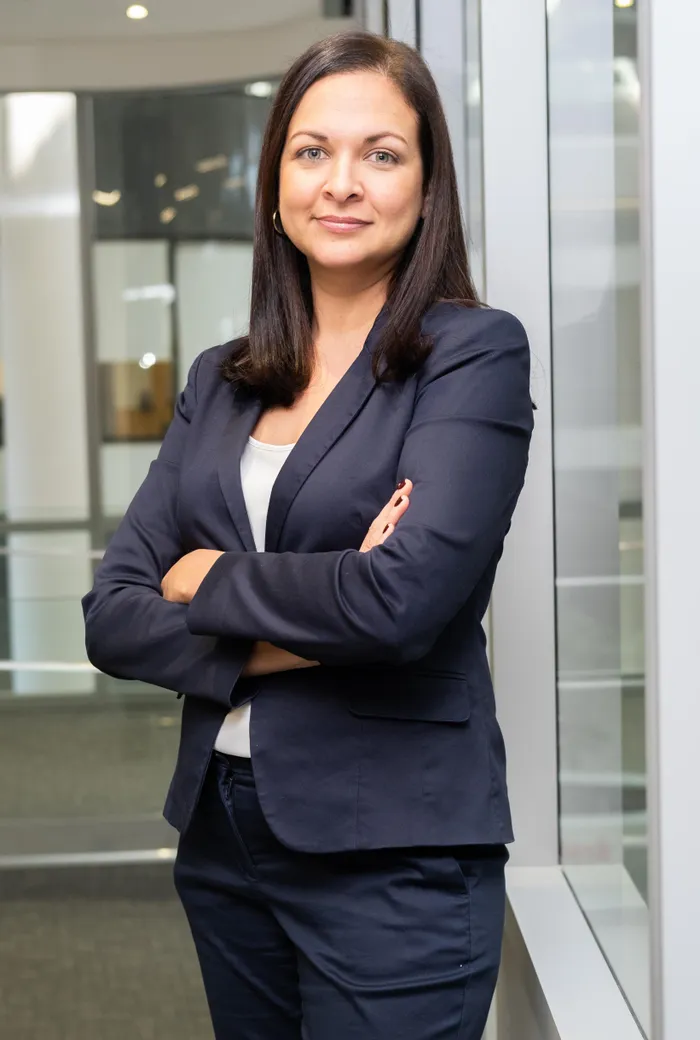
The proliferation of AI in the workforce not only demands embedding AI fluency early, but also, a more strategic approach to developing young talent, says the author.
Image: AI Lab
Artificial Intelligence (AI) is disrupting every phase of the banking value chain – including, critically, the recruitment of a workforce equipped to navigate its breakneck pace of change while sustaining both current and future business resilience.
We’re witnessing a paradox in recruitment. While companies rely on AI to filter applications, candidates are also turning to AI to refine and enhance theirs. From autogenerated responses to simulated interviews, technology is influencing both sides of the process.
In a country where youth unemployment stands at 45.5% among individuals aged 15-34 years, the proliferation of AI in the workforce not only demands embedding AI fluency early, but also, a more strategic approach to developing young talent.
Rethinking Graduate Roles
Absa’s graduate programme within Corporate and Investment Banking (CIB) reflects this mindset. It’s an 18-month rotation through various desks, including research and technical teams, and now includes exposure to AI, which is a growing exploratory area. Our Gen A Grad Programme blends theory, business skills, technical knowledge, soft skills, and on-the-job learning.
Two years ago, the bank partnered with a corporate executive training firm to enhance the programme’s relevance and introduce an AI component. Today, our graduates work on practical, real-world case studies in GenAI, AI, and data — and the feedback from receiving teams suggests we are on the right track. Receiving teams have praised the diverse and forward-thinking skillsets that these graduates bring. The programme has trained many graduates, equipping them with the tools to lead confidently in a technology-driven financial landscape.
Where early-career professionals once gained experience by handling routine administrative tasks, AI now takes care of many of these responsibilities, from notetaking to task-tracking. This creates space for young hires to contribute more strategically from the outset.
However, it also raises the bar: employers must ensure that graduates are equipped not only with technical know-how but with a critical understanding of how to use these tools effectively, ethically, and responsibly.
At the same time, digital inequity presents a real challenge. Not all graduates have access to advanced AI tools, reliable internet, or exposure to the systems they’ll be expected to use in the workplace. Left unaddressed, this divide creates a two-speed workforce. Graduate programmes must account for this gap and provide equal opportunities for all entrants to thrive.
Authenticity and Ethics in an AI-Driven Talent Landscape
As we accelerate digitisation, we must remain committed to human-centred hiring. Applicants want to be seen for who they are, not simply how well they navigate an algorithm. Similarly, employers want to attract real talent, not just those who know how to game AI-powered systems. That’s why it’s critical to establish clear standards around the ethical use of AI in recruitment.
Creating a culture of ethical AI use starts early. This goes beyond compliance; it’s about shaping habits and values from the outset. Young professionals should be encouraged to question the tools they use, understand AI’s limitations, and be confident in their own voice. On the employer side, transparency and consistency are vital, along with providing support for responsible AI engagement across all levels of experience.
Technical expertise – like coding in Python or Java – is still important. But so are softer skills like adaptability, digital storytelling and data ethics. Future-ready professionals will be those who combine technical fluency with a clear sense of accountability and social impact.
Build with People, Not Just Technology
The future of banking isn’t just digital. It is also human. To navigate AI disruption effectively, banks must prioritise people-first transformation. That means building graduate programmes that mirror the pace of change to fully meet the moment. It also means crafting upskilling strategies that blend theory with application, and most of all, creating environments where innovation thrives. We don’t yet know exactly what the AI-era bank will look like in 10 years. But we do know it will be built by people who understand technology, adapt with agility, and bring purpose-driven thinking to the table.

Marsha De Wet is the Global Markets Chief Operating Officer at Absa CIB.
Image: Supplied
Marsha De Wet is the Global Markets Chief Operating Officer at Absa CIB
*** The views expressed here do not necessarily represent those of Independent Media or IOL
BUSINESS REPORT